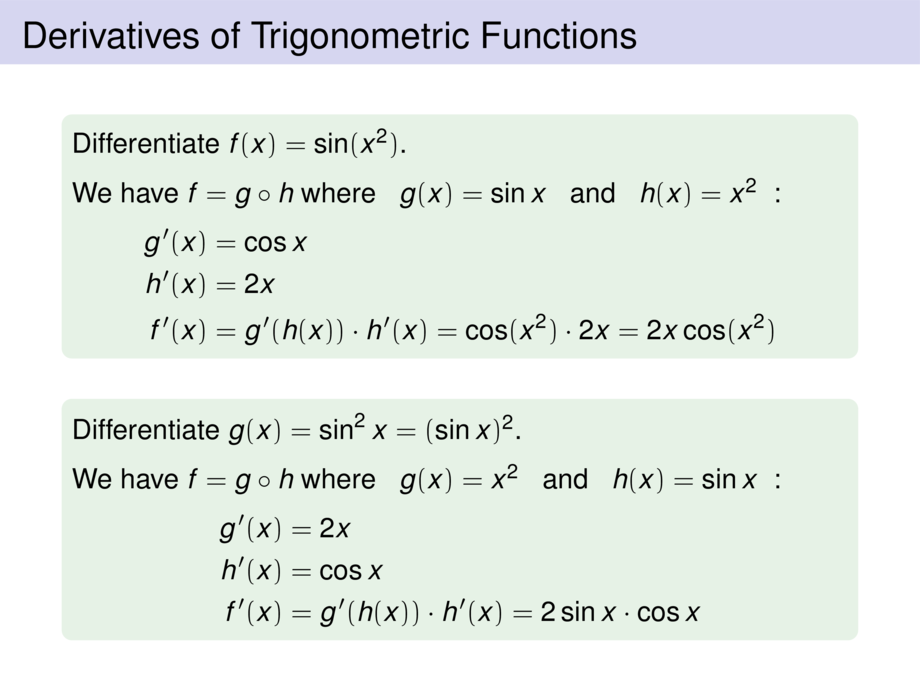



































































































78/93
\begin{frame}
\frametitle{Derivatives of Trigonometric Functions}
\begin{exampleblock}{}
Differentiate $f(x) = \sin(x^2)$.
\pause\medskip
We have $f = g \circ h$ where \;\;$g(x) = \sin x$\;\; and \;\;$h(x) = x^2$\;\;:
\pause
\begin{talign}
g'(x) &\mpause[1]{= \cos x } \\
\mpause[2]{h'(x) }&\mpause[3]{ = 2x } \\
\mpause[4]{f'(x)}
&\mpause[5]{ = g'(h(x)) \cdot h'(x) }
\mpause[6]{ = \cos(x^2) \cdot 2x }
\mpause[7]{ = 2x\cos(x^2) }
\end{talign}
\end{exampleblock}
\pause\pause\pause\pause\pause\pause\pause\pause
\medskip
\begin{exampleblock}{}
Differentiate $g(x) = \sin^2 x \pause = (\sin x)^2$.
\pause\medskip
We have $f = g \circ h$ where \;\;$g(x) = x^2$\;\; and \;\;$h(x) = \sin x$\;\;:
\pause
\begin{talign}
g'(x) &\mpause[1]{= 2x } \\
\mpause[2]{h'(x) }&\mpause[3]{ = \cos x } \\
\mpause[4]{f'(x)}
&\mpause[5]{ = g'(h(x)) \cdot h'(x) }
\mpause[6]{ = 2 \sin x \cdot \cos x }
\end{talign}
\end{exampleblock}
\end{frame}

